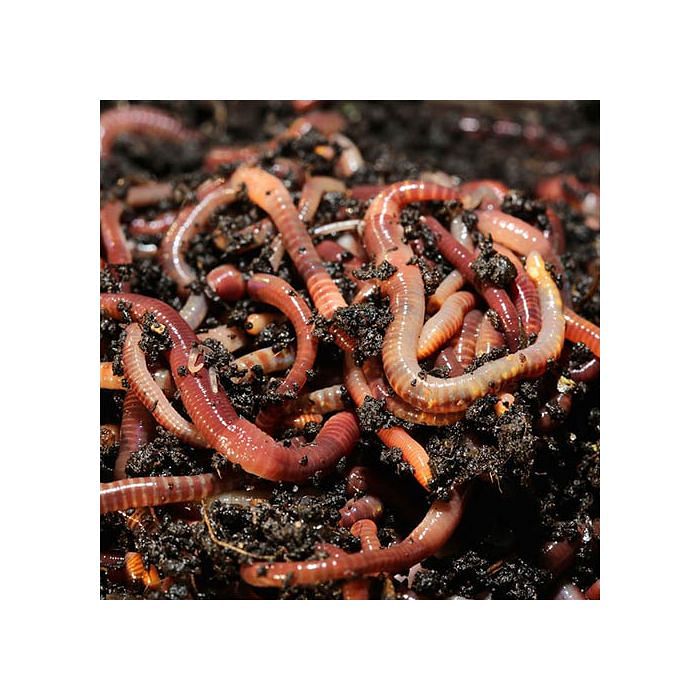
Why we think this product is sustainable
Natural product
Tiger worms are the best worms you can use in your wormery for worm composting. Supplied in breathable pouches and sent by secure delivery service to arrive in a healthy condition. Due to our storage methods, worms may arrive in a dormant state but don't worry, they are still happy and healthy but may need a few days to wake up.
Our Tiger worms are sent in pouches weighing 250 grams per pack - this 250 gram bag includes a combination of worms as well as the soil in which the worms need to travel comfortably.
Pouches are produced by weight. The number of worms per pouch is dependent on the size of worms.
There are three native species of worm which are all good at the rapid processing of dead organic waste into nutrient-rich compost. These are:
- The Tiger worm, aka the Brandling worm. Proper name Eisenia fetida.
- The Bluenose worm, aka Dendobaena and the European nightcrawler and by some as Eisenia hortensis. Proper name Dendrobaena veneta.
- The Redworm, aka the red wiggler and the Brandling worm. Scientific name: Eisenia Andrei.
All are good and will work well in your wormery. But, for adaptability, conditions tolerance, versatility, and composting rate the answer is the Tiger worm.
Some Worm facts:
- Tiger worms are a little more expensive and significantly better than Dendrobaena in Wormeries.
- Young worms are preferable (hungrier) to older worms.
- When it comes to composting - the condition, age, size and species of worm is more important than their weight.
- Tiger worms reach sexual maturity (they are hermaphrodite) in approx 6 weeks.
- Dendrobaena are more widely available than Tigers as there is an established 'cottage' industry breeding them for anglers who hook them up as bait. They are also easier to harvest and are usually cheaper.
General Delivery Information
Delivery is free for orders over £50.00.
UK Delivery Times
Delivery of your items will be as quickly as possible, however, during holiday and festive periods including Christmas and Bank Holidays, and for large/heavy goods, the delivery may take longer.
Tracking numbers
Tracking numbers are provided for each order.
Safe locations
We usually give our couriers permission to leave goods in a safe place if there is one, but it would be helpful if you could let us know specifically where we can leave it if you are out. You can use the “Special Instructions” box on the checkout page to do this when placing your order; e.g. “If I am out, leave it by the dustbins”. If you do not wish for it to be left, you can also let us know using the Special Instructions box. In these cases, our couriers will leave a card and you can either collect the delivery from them or arrange a redelivery day.
For additional security, orders may require a signature on delivery. If you are unable to be at home when the delivery is due, please add additional comments in the ‘Special Instructions’ box or if you have already placed your order, give our customer services a call and they will arrange new instructions for the courier.

Save £10 on your first order over £125

















